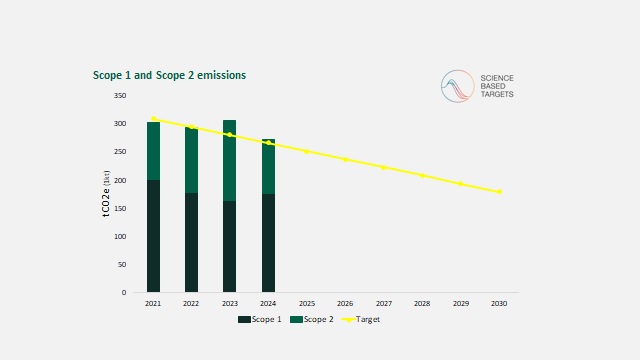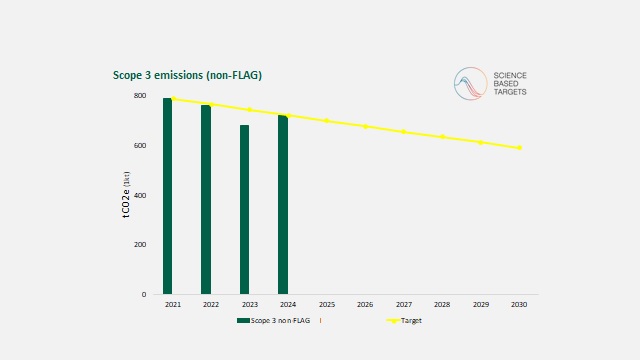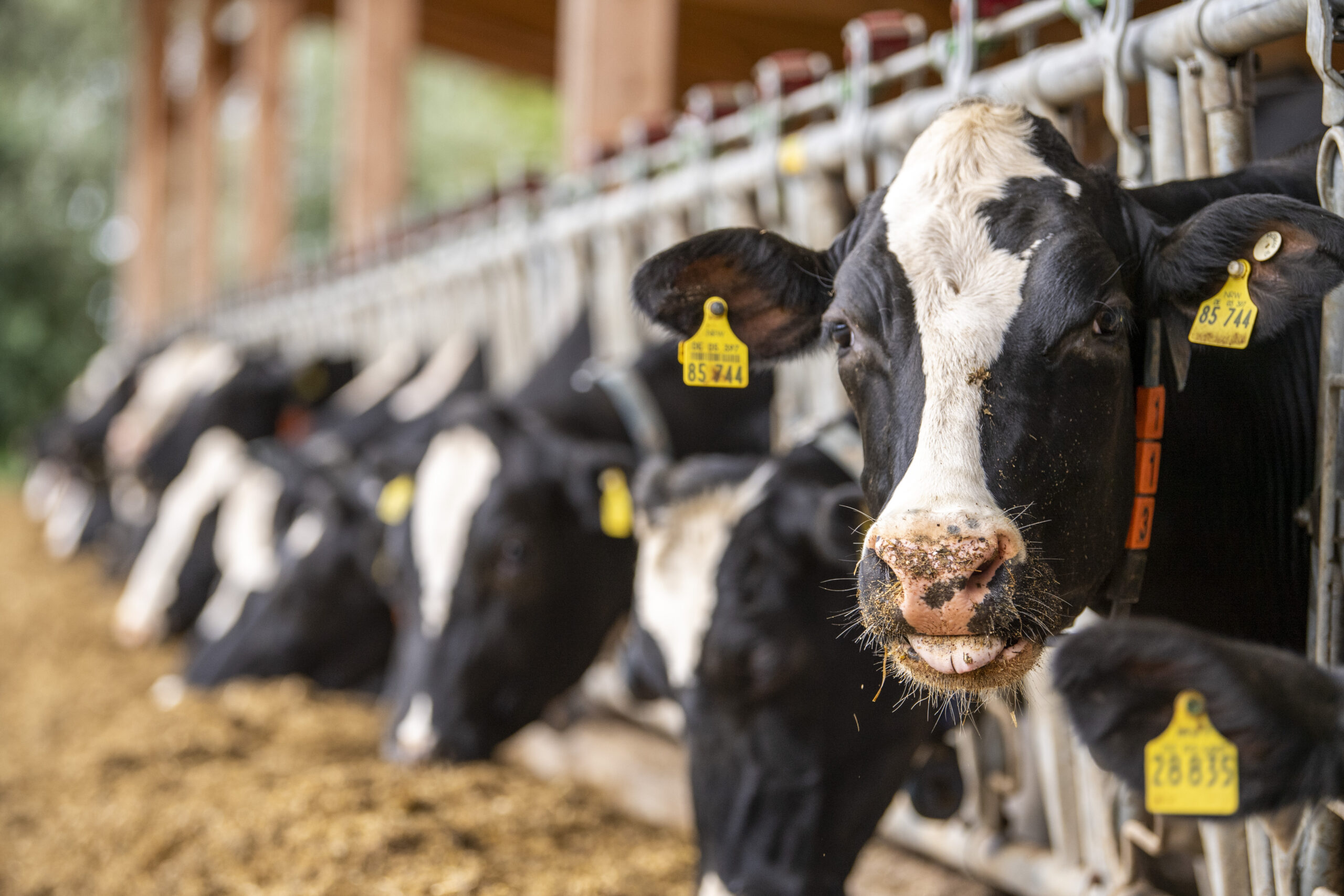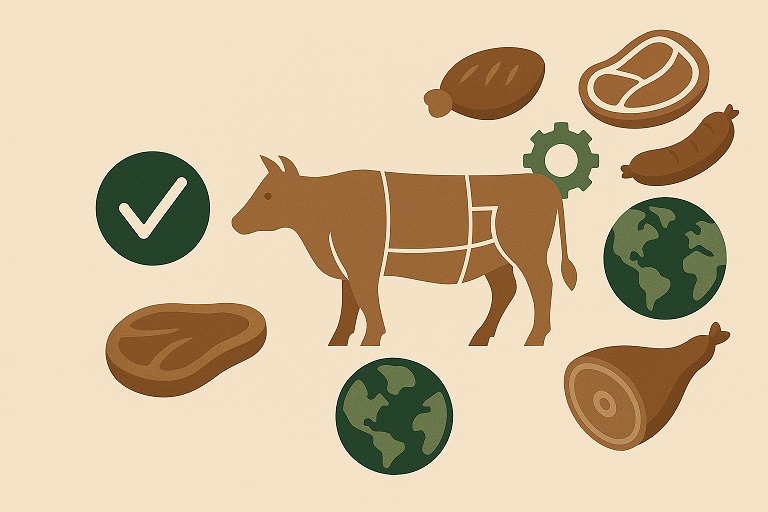climate action

Working together for a sustainable future – climate protection at Premium Food Group
As a premium food group, we take responsibility – not only for quality and enjoyment, but also for our environment. Climate change is one of the greatest challenges of our time. That is why we are committed to concrete measures to reduce our CO₂ emissions, conserve resources and promote sustainable solutions along our entire value chain.
From the selection of regional raw materials to energy-efficient production processes and innovative packaging concepts – we are making food climate-friendly and future-proof. Our goal: excellent food, produced with respect for people, animals and the environment.
Our responsibility to the environment is clear: from animal husbandry to processing and packaging, we implement sustainable and resource-efficient processes.
Christian Bader, Sustainability

Climate targets validated by the Science Based Targets Initiative
We take our responsibility for sustainability and climate protection seriously and work closely with the agricultural sector. Our goal is to be one of Europe’s most sustainable food producers by 2030. To measure our progress, we have committed to reducing our greenhouse gas emissions in line with the science-based criteria of the Science Based Targets initiative (SBTi). Our emission reduction targets were validated by the SBTi in 2024 and are in line with the 1.5-degree target of the Paris Agreement.
Our ambitious goals
-42%
by 2030 (base year 2021)
scope 1 & 2 emissions
interim result 2024
-11% (base year 2021)
-25%
by 2030 (base year 2021)
scope 3 emissions
interim result 2024
-8% (base year 2021)
-30%
by 2030 (base year 2021)
emissions from agriculture and land use (FLAG)
interim result 2024
-12% (base year 2021)
Identify emissions. Take responsibility.
Climate protection is a major challenge that requires long-term strategies and concrete measures. In order to develop these and reduce greenhouse gas emissions, we need to understand exactly where emissions are released. We have collected a lot of data to calculate our carbon footprint (CCF). The CCF shows us how many greenhouse gases are generated by our processes and along the value chain. We recalculate the CCF annually and continue to reduce it through targeted measures. Our goal is to do our part to achieve the 1.5-degree target of the Paris Climate Agreement, both in our operations (Scope 1 and 2) and together with our supply chain (Scope 3).

Scope 1 refers to direct greenhouse gas emissions from sources owned or controlled by a company.
Scope 2 refers to indirect greenhouse gas emissions from the generation of purchased energy, such as electricity, steam, heating or cooling, used by a company.

Scope 3 refers to all other indirect greenhouse gas (GHG) emissions that occur in a company’s value chain, both upstream and downstream. These are emissions that the company does not directly control but which are linked to its activities.

FLAG emissions (forest, land and agriculture) are reported separately because they include both emissions and natural carbon removal (e.g. trees absorbing CO₂).
Our measures

Switch electricity demand to renewable energies
We use resources efficiently to preserve them for future generations and protect the environment, people and animals. Our goal is to continuously reduce energy and water consumption throughout the entire life cycle of our products and in all areas of our business. By 2030, we will gradually switch our electricity needs to renewable energies. We already obtain 20 percent of our electricity from hydropower.

Deforestation-free feed for pigs and cattle
Preserving native forests makes an important contribution to mitigating climate change and is important for biodiversity and as a refuge for endangered indigenous peoples. Important milestones have been reached – for example, the conversion of almost all German pig, cattle and poultry farming to deforestation-free soy in feed since 1 January 2024. We are now pursuing the goal of converting our supply chains to deforestation-free raw materials by the end of 2025.
You can find our official statement on this here: Deforestation Statement

Using resources efficiently – avoiding losses
Resource conservation begins with appreciating what we have. A key lever for this is the consistent avoidance of food loss along the entire value chain. With our whole-animal marketing, we use over 98 per cent of each animal – setting new standards for responsible and sustainable meat production. Every part is processed sensibly – for high-quality products, functioning cycles and real climate benefits. In this way, we not only contribute to reducing waste, but also promote a culture of more conscious consumption and holistic resource use.
Contacts
